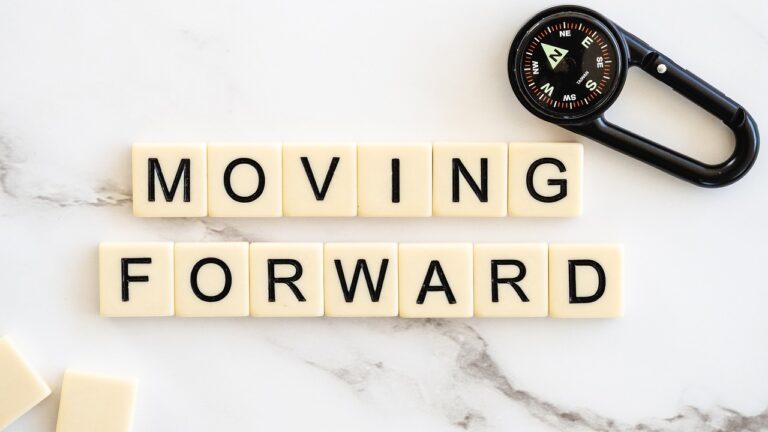Own Your Growth: Proactively Choosing to Improve Yourself
Don’t Wait to Get Better: The Importance of Taking Ownership of Your Growth
As individuals, it is easy to fall into the trap of waiting for external circumstances to push us towards personal growth and development. We may wait until we are forced to make a change, such as being passed up for a promotion or receiving negative feedback from our supervisor. However, this reactive approach to self-improvement can lead to missed opportunities and a sense of helplessness.
On the other hand, proactively choosing to improve ourselves can empower us to take control of our own growth trajectory. When we take ownership of our personal growth and development, we are able to set goals, create a plan for growth, and seek out resources and support. This proactive approach can lead to increased confidence, satisfaction, and success in both our personal and professional lives.
It is important to note that taking ownership of our personal growth and development is not just about making changes in response to external pressures. It is about making a deliberate choice to improve ourselves because we want to be the best version of ourselves that we can be. This choice requires a mindset shift – from waiting for external circumstances to drive our growth to proactively seeking out opportunities for growth and development.
In the following sections, we will explore the consequences of waiting to improve, the benefits of proactively choosing to improve, and practical strategies for taking ownership of our personal growth and development.
The Consequences of Waiting to Improve
Waiting for external factors to drive personal growth can have negative consequences that impact our personal and professional lives. When we wait for external pressures to force us to make changes, we may miss out on opportunities for growth and development that could have led to greater success and fulfillment. Additionally, when we do not take ownership of our personal growth, we may become complacent and stagnant in our current roles or situations.
One example of the consequences of waiting to improve is a lack of career advancement. When we wait for external pressures to motivate us to improve, we may miss opportunities for career growth and advancement. For example, if we are not proactively seeking out opportunities to develop new skills or take on new challenges, we may not be seen as a strong candidate for promotions or new job opportunities. This can lead to feelings of frustration and disappointment in our careers.
Another consequence of waiting to improve is a lack of personal fulfillment. When we do not take ownership of our personal growth and development, we may find ourselves feeling unfulfilled or dissatisfied with our lives. For example, if we do not proactively seek out opportunities to pursue our passions or interests, we may feel unfulfilled in our personal lives. This can lead to a sense of purposelessness and unhappiness.
There are many examples of individuals who have suffered as a result of a lack of proactive self-improvement. For instance, consider a professional athlete who does not take ownership of their physical fitness and does not put in the effort to improve their skills. As a result, they may not be able to compete at the highest level and may not achieve their full potential. Similarly, a student who does not take ownership of their academic growth and development may struggle in school and not reach their academic potential.
Waiting for external factors to drive personal growth can have negative consequences that impact our personal and professional lives. To avoid these consequences, it is important to proactively choose to improve ourselves and take ownership of our personal growth and development. In the following sections, we will explore the benefits of proactively choosing to improve and practical strategies for taking ownership of our personal growth.
The Benefits of Proactively Choosing to Improve
Choosing to proactively improve ourselves can have a range of positive outcomes, both in our personal and professional lives. When we take ownership of our personal growth and development, we are able to set goals, create a plan for growth, and seek out resources and support. This proactive approach can lead to increased confidence, satisfaction, and success in both our personal and professional lives.
One of the key benefits of proactively choosing to improve is increased self-awareness. When we take ownership of our personal growth and development, we are more likely to identify our strengths and weaknesses. This increased self-awareness allows us to leverage our strengths and address areas that may need improvement. In turn, this can lead to greater success and fulfillment in our personal and professional lives.
Another benefit of proactively choosing to improve is increased motivation and engagement. When we are actively pursuing personal growth and development, we are more likely to be engaged and motivated in our daily lives. This can lead to greater productivity and success in both our personal and professional lives.
Proactively choosing to improve can also lead to greater confidence and self-efficacy. When we take ownership of our personal growth and development, we are in control of our own growth trajectory. This sense of control can lead to increased confidence and a greater belief in our ability to succeed. In turn, this can lead to greater success in our personal and professional lives.
Moreover, proactively choosing to improve ourselves can lead to greater resilience and adaptability. When we are actively pursuing personal growth and development, we are better equipped to handle challenges and setbacks. We are more likely to have a growth mindset, which allows us to view challenges as opportunities for learning and growth. This can lead to greater resilience and adaptability in both our personal and professional lives.
Proactively choosing to improve ourselves can have a range of positive outcomes in our personal and professional lives. From increased self-awareness to greater confidence and resilience, taking ownership of our personal growth and development can lead to greater success and fulfillment. In the following sections, we will explore practical strategies for taking ownership of our personal growth and development.
Taking Ownership of Your Growth
Taking ownership of our personal growth and development requires a deliberate and proactive approach. Below are some practical tips and strategies that individuals can use to take ownership of their growth and development.
-
Set Goals and Create a Plan for Growth: One of the most important steps in taking ownership of our personal growth and development is setting goals and creating a plan for growth. Start by identifying areas that you would like to improve or develop, and set specific and measurable goals for each area. Then, create a plan for achieving these goals, including specific actions and timelines for completion.
-
Seek out Resources and Support: To achieve our personal growth and development goals, we often need support and resources. This may include seeking out training, mentorship, or coaching. Identify individuals or organizations that can help you achieve your goals and take proactive steps to connect with them.
-
Prioritize Learning and Development: Taking ownership of our personal growth and development means prioritizing learning and development. This may include seeking out new experiences or opportunities for growth, such as attending workshops or conferences, taking on new challenges at work, or pursuing a new hobby.
-
Embrace Accountability: Accountability is a crucial component of taking ownership of our personal growth and development. Identify individuals or groups who can hold you accountable for your goals and progress, and schedule regular check-ins with them to review your progress and identify areas for improvement.
-
Seek Feedback from Others: Finally, seeking feedback from others is an important part of taking ownership of our personal growth and development. This may include asking for feedback from colleagues or supervisors, seeking out a mentor or coach, or participating in peer groups or networks. Use this feedback to identify areas for improvement and to develop strategies for growth and development.
Taking ownership of our personal growth and development requires a deliberate and proactive approach. By setting goals and creating a plan for growth, seeking out resources and support, prioritizing learning and development, embracing accountability, and seeking feedback from others, individuals can take control of their own growth trajectory and achieve greater success and fulfillment in both their personal and professional lives.
Overcoming Barriers to Personal Growth
Despite the benefits of taking ownership of our personal growth and development, there are often barriers that can prevent us from achieving our goals. Below are some common obstacles that individuals may encounter when trying to take ownership of their personal growth, as well as strategies for overcoming these barriers.
-
Lack of Time: One of the most common barriers to personal growth is a lack of time. With busy schedules and competing priorities, it can be challenging to find time for learning and development. To overcome this barrier, individuals can try to identify small pockets of time throughout the day for personal growth, such as reading during a commute or listening to a podcast during a workout. They can also try to carve out dedicated time each week for learning and development.
-
Fear of Failure: Fear of failure can also be a barrier to personal growth. When we are afraid to fail, we may avoid taking risks or pursuing new opportunities for growth. To overcome this barrier, individuals can reframe their mindset around failure and view it as an opportunity for learning and growth. They can also seek out support and resources to help them build confidence and resilience.
-
Lack of Resources: Another barrier to personal growth is a lack of resources, such as access to training or mentorship. To overcome this barrier, individuals can seek out alternative resources and support, such as online courses or peer groups. They can also advocate for themselves and seek out opportunities for growth within their current organization.
-
Limited Belief in Personal Abilities: Sometimes individuals may feel limited in their belief in their own personal abilities to achieve personal growth. This can hold them back from pursuing new challenges and taking ownership of their own development. To overcome this, individuals can try to reframe their mindset around their abilities and focus on their strengths. They can also seek out resources and support that can help them build skills and confidence.
-
Lack of Support: Finally, a lack of support can also be a barrier to personal growth. Without support from colleagues, supervisors, or peers, it can be challenging to achieve personal growth goals. To overcome this barrier, individuals can seek out support and resources within their existing networks, or they can seek out new networks that can offer support and mentorship.
There are many barriers that can prevent individuals from taking ownership of their personal growth and development. By identifying these barriers and seeking out strategies for overcoming them, individuals can take control of their own growth trajectory and achieve greater success and fulfillment in both their personal and professional lives.
The Importance of Continual Improvement
Taking ownership of our personal growth and development is not a one-time event, but rather a lifelong journey. Continual improvement is crucial for individuals who wish to achieve success and fulfillment in both their personal and professional lives. Below are some reasons why continual improvement is important and the benefits of lifelong learning and continuous improvement.
-
Adaptability: One of the key benefits of continual improvement is increased adaptability. As we encounter new challenges and changes in our personal and professional lives, we need to be able to adapt quickly and effectively. Continual improvement can help us build the skills and mindset necessary to navigate these changes and thrive in new situations.
-
Career Advancement: Continual improvement is also important for career advancement. In a rapidly changing job market, individuals who are able to continually develop their skills and stay up-to-date with industry trends are more likely to succeed and advance in their careers.
-
Personal Growth and Fulfillment: Continual improvement is also important for personal growth and fulfillment. Learning new skills and pursuing new interests can help individuals build a sense of purpose and satisfaction in their lives. It can also help them build stronger relationships with others and develop a deeper sense of self-awareness.
-
Lifelong Learning: Lifelong learning is a key component of continual improvement. By embracing a mindset of lifelong learning, individuals can stay engaged and curious throughout their lives. This can lead to greater satisfaction and fulfillment in both personal and professional contexts.
-
Improved Problem-Solving and Decision-Making: Continual improvement can also lead to improved problem-solving and decision-making skills. As individuals develop their skills and knowledge, they become better equipped to tackle complex challenges and make effective decisions.
Continual improvement is crucial for individuals who wish to achieve success and fulfillment in both their personal and professional lives. By embracing a mindset of lifelong learning and continuously pursuing personal growth and development, individuals can build their skills, adaptability, and confidence, and ultimately achieve greater success and fulfillment in their lives.
The Power of Proactive Growth: Empowering Yourself to Achieve Success
Taking ownership of our personal growth and development is a deliberate and proactive approach that can lead to increased confidence, satisfaction, and success in both our personal and professional lives. By proactively choosing to improve ourselves, we can set goals, create a plan for growth, seek out resources and support, prioritize learning and development, embrace accountability, and seek feedback from others.
Waiting for external factors to drive personal growth can have negative consequences that impact our personal and professional lives. On the other hand, proactively choosing to improve ourselves can empower us to take control of our own growth trajectory. When we take ownership of our personal growth and development, we are able to set goals, create a plan for growth, and seek out resources and support. This proactive approach can lead to increased confidence, satisfaction, and success in both our personal and professional lives.
Overcoming barriers to personal growth, such as lack of time or fear of failure, requires identifying these barriers and seeking out strategies for overcoming them. By identifying small pockets of time for personal growth, reframing our mindset around failure, seeking out resources and support, building our skills and confidence, and seeking out support from others, we can overcome these barriers and take ownership of our personal growth and development.
Finally, continual improvement is crucial for individuals who wish to achieve success and fulfillment in both their personal and professional lives. By embracing a mindset of lifelong learning and continuously pursuing personal growth and development, individuals can build their skills, adaptability, and confidence, and ultimately achieve greater success and fulfillment in their lives.
In conclusion, we encourage readers to take ownership of their personal growth and development by proactively choosing to improve themselves. By doing so, individuals can achieve greater success and fulfillment in both their personal and professional lives.







